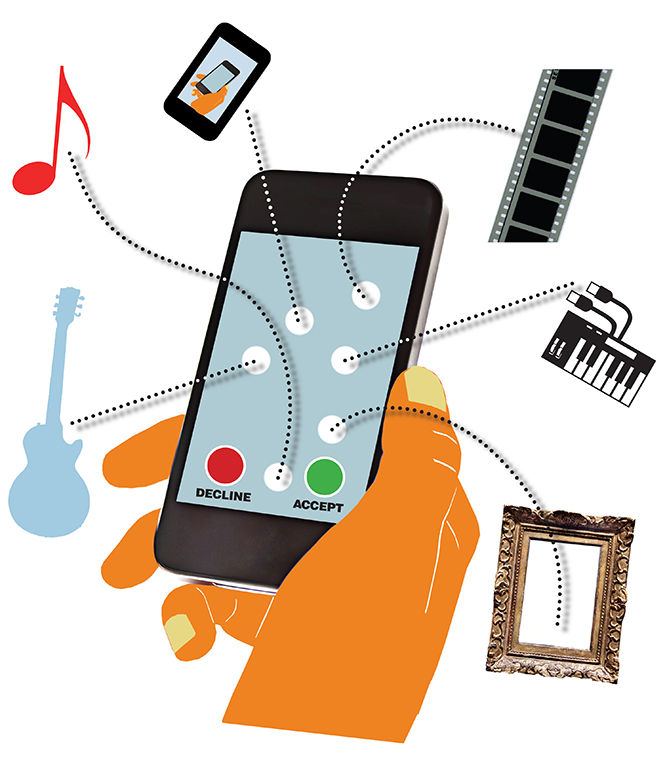KSU professors study the effects of cell phone use on academic performance
A new study conducted by Kent State professors examines the link between college students’ GPA and smartphone use.
Last year, Andrew Lepp, an associate professor in the School of Foundations, Leadership and Administration; Jacob Barkley, an associate professor in the School of Health Sciences; and Aryn Karpinski, an assistant professor in the School of Foundations, Leadership and Administration, surveyed 536 Kent undergraduate students to assess the relationship between cell phone use and academic performance.
SAGE Publications published the study in February.
Lepp said the study’s findings represent a negative correlation: As smartphone use increases, academic performance decreases.
The researchers split the sample into three groups of low users, moderate users and high users. The low users, who used their cell phones for about 90 minutes a day, averaged a 3.15 GPA; the moderate users, who used cell phones between two and four hours a day, averaged a 3.06 GPA; and the high users, who used cell phones upwards of eight hours a day, averaged a 2.84 GPA.
“We were able to compare cell phone use and academic performance between students who were pretty equal in their ability to do well in college,” Lepp said. “Students who use the cell phone frequently are more likely to do poorly in school, relative to someone who doesn’t use the cell phone as much.”
The study collected and considered students’ high school GPA, class standing, major and confidence in academic performance. Barkley said this ensured a comparison among students with similar attributes and abilities.
“Independent of all these other factors, it still holds that there is a significant negative relationship between cell phone use and GPA,” Barkley said.
A combination of professional and personal observations led the researchers to decide to conduct the study.
“When you’re teaching classes or just walking around campus, you see students constantly glued to their cell phones at inappropriate times, like in the middle of a lecture or at the library when they are trying to study,” Barkley said.
Chantel Lawler, a senior public health major, said she uses her phone around five hours a day and tries to put it on silent when she studies.
“I’m so gullible, and I reach for my phone all the time,” Lawler said. “I have a really good GPA, and I feel like I always get my work done, but I can definitely see how people might be affected differently.”
Though many students may think they are good at multitasking, Lepp said differently.
“The truth is no one is good at multitasking,” Lepp said.
Angela Nunns, a senior accounting major, said she believes students who are on their phones during class cannot possibly retain the lecture.
“They’re not paying attention to someone who is speaking to them,” Nunns said. “They’re reading and looking at something on a phone, so there is no way they can take in both and comprehend information.”
Lepp said he wants people to become more aware of the appropriate and inappropriate times to use the cell phone, especially when it involves academic activities.
“Being a professor and being around students all the time, you just notice student behavior seems to be changing as smartphones become a dominant piece of student life and culture,” Lepp said.
Contact Julianne Calapa at [email protected].



